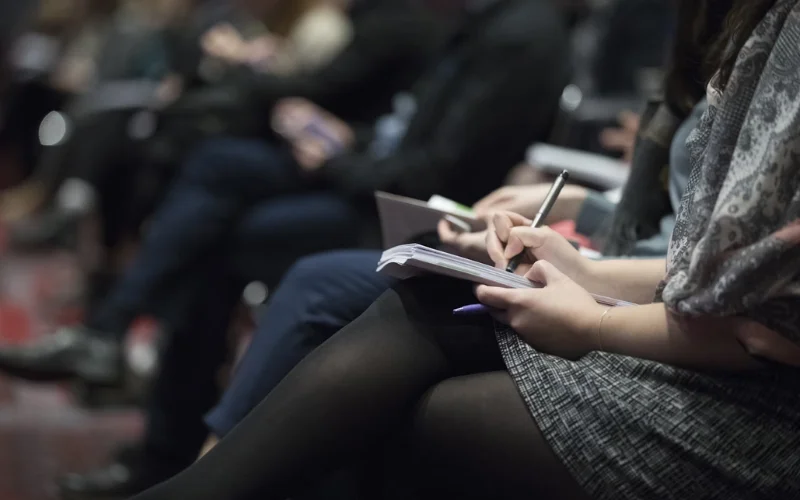Filing for bankruptcy is the first step toward getting your life back together. Whether you file for Chapter 13 or 7 Chapter bankruptcy, it involves attending a ‘meeting of creditors.’ So, what is it? Since it’s an indispensable part of the bankruptcy process, it’s worth looking at what to expect when you attend and how a debt lawyer can help.
Why You Need To Attend A Meeting of Creditors?
The meeting of creditors is where the bankruptcy trustee and your creditors will ask questions about your bankruptcy petition. Also known as the 341 hearing, it’s where the trustee will verify the authenticity of the documents you provided. Essentially, it’s a hearing to determine that the information you provided is complete and accurate.
The difference is that during a 341 hearing in a Chapter 13 bankruptcy case, the focus is on your repayment plan. That’s because your trustee will be responsible for making sure that all your disposable income goes towards your unsecured creditors. These are institutions that lend you money without obtaining assets as collateral. In addition to checking your identification and verifying information, the trustee will discuss your proposed repayment plan and explain the process of making your monthly repayment plan payments.
Who Attends The Meeting of Creditors
Because the meeting is much more informal than a regular hearing, there won’t be a judge. Rather, the trustee appointed to your Chapter 13 or Chapter 7 bankruptcy case will hold the meeting. Here’s who you can expect to attend:
- Creditors: In most cases, creditors don’t attend the meeting unless they suspect bankruptcy fraud, in which case they may send a representative to gather information. Some creditors, like an angry ex-spouse or business partner, may make an appearance, but this is nothing to worry about. If you’ve hired a bankruptcy attorney, they can help you narrow down who may show up.
- Other Debtors: The trustee appointed to your case may schedule about ten other bankruptcy filers for the same hour. Therefore, other 7 Chapter or Chapter 13 debtors will also be in attendance. If you’re not the first debtor to be called, you’ll get to see the process before it’s your turn.
- Your bankruptcy attorney will attend the meeting with you.
Also, the 341 hearing is open to the public, which means that anyone can observe the meeting.
What Documents To Bring
It’s necessary to attend the first meeting of creditors; otherwise, your case may be dismissed. If you filed a joint petition with your spouse, both of you should attend. During the meeting, your trustee will ask questions under oath. Seven days before the meeting, you should send the trustee:
- Copies of recent pay stubs received within 60 days before filing your bankruptcy petition.
- Copy of your latest federal income tax return.
Remember to black out any sensitive information like date of birth (except the year), account number (except the last four digits), and your social security number (except the last four digits).
Remember to bring proof of your social security number and photo ID on the day of the meeting.
Your Trustee’s Responsibilities
The trustee’s responsibilities are typically the same in both Chapter 7 and Chapter 13, except for a few differences. During the meeting of creditors, your trustee will:
- Go over your bankruptcy documents to see if they’re accurate
- Verify your ID
- Investigate possible bankruptcy fraud
- See if your Chapter 7 bankruptcy can be converted to a Chapter 13 bankruptcy
- Sell nonexempt assets to pay off creditors.
- In the case of Chapter 13, the trustee will discuss your repayment plan, as well as where to make payments.
What To Expect At The Meeting
Since it may be difficult to find a parking spot near a court facility, it’s best to make arrangements beforehand so you can arrive about 15 minutes early. Because many trustees can hold meetings in the same building at the same time, having extra time allows you to find the right room. Other debtors will likely be scheduled for the same meeting hours as you, so it’s best to check the calendar to know when it’s your turn.
Trustees start with roll calls and explaining the meeting procedures. If you’re working with a debt attorney, they’ll already have explained the process. Once it’s your turn, you’ll be called to the trustee’s desk.
- You’ll provide a photo ID.
- You’ll be placed under oath.
- The trustee and creditors will ask questions.
By hiring a bankruptcy Chapter 13 attorney, you’ll be able to predict what questions they can ask. But since there’s little time, creditors can’t ask too many questions at the 341 hearing. However, if they need more time, the trustee may continue with the meeting on another day. Most meetings only take between five and ten minutes.
Creditors who attend are likely assessing whether they can dispute the discharge of debt and will attend and try to gather information at the meeting. They can ask about financial information, as well as the nature and location of your assets.
When a Trustee Rejects Your Repayment Plan
In the case of a Chapter 13 bankruptcy, the trustee will conclude the hearing once they’re satisfied with your repayment plan. But if they believe that you should pay more to your unsecured creditors, they will object to your repayment plan. They do so by filing a motion to dismiss. In that case, you must address the issue so your trustee is satisfied. Or, you can prove to the judge why your plan should be approved.
How You’ll Be Informed About The Meeting of Creditors
You’ll get a notice for the 341 hearing from the court. They set a date for the meeting between 21 and 40 days after you file for bankruptcy. It’s best to keep the notice on hand since it gives you information like the filing date and bankruptcy case number, as well as the trustee’s name and contact details.
As you can see, filing for bankruptcy is a lengthy, arduous process. You’ll have to meet different deadlines and submit numerous documents. Missing a single step could lead to the dismissal of your case. Therefore, it’s best to work with a bankruptcy lawyer to help you during the process.



